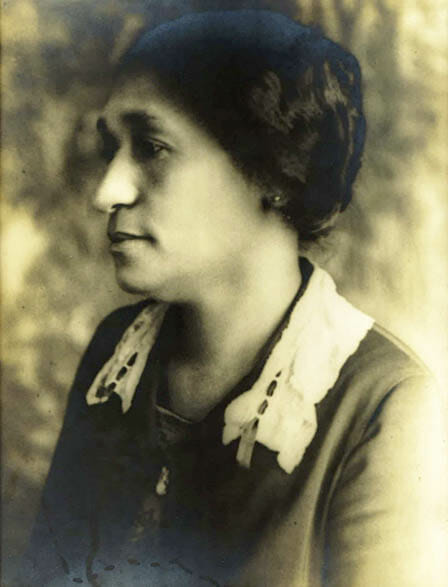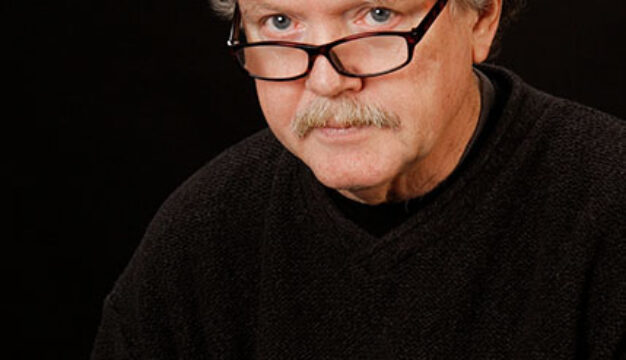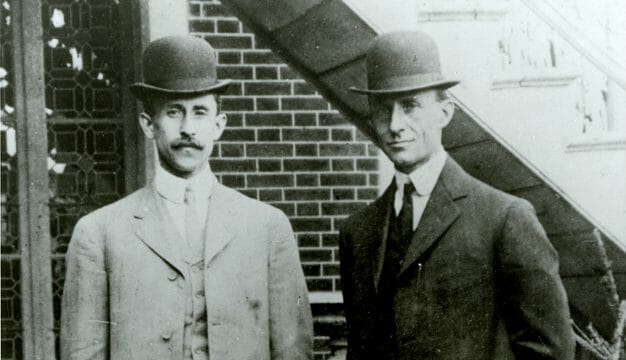Pauline Fletcher
Pauline Bray Fletcher (1884-1970) was a public health official, the first Black registered nurse in Alabama, and the founder of Camp Fletcher for Black youths, in Jefferson County. She was a person of vision and determination and refused to be a victim of the Jim Crow South and let racial bigotry define her life, traits she aimed to instill in those children.
Bray (sometimes spelled Braye) was born May 8, 1884, in Franklin County, Georgia, to Andrew Jackson Bray, a farmer, and Mary Frances Bray, a seamstress. She had five siblings, including an older brother, James A. Bray, who became the first president of Miles College, an historically Black college, in 1907. Her upbringing and education instilled leadership traits that would serve her throughout her life. After completing high school at the Haines Normal and Industrial Institute (present-day Lucy C. Laney High School) in Augusta, Georgia, Bray attended Hampton Normal and Agricultural Institute (present-day Hampton University), in Hampton, Virginia, the alma mater of Booker T. Washington. There, like Washington, she too learned the value of hard work and making a difference in ordinary people's lives. After her father's death and the family's ensuing financial problems, Bray dropped out of school and returned to Georgia, where she picked cotton to support her mother and siblings. Within a year, she resumed her education at Huntsville Normal School (present-day Alabama A&M University). She studied nursing and sewing and graduated in May 1904, making her the state’s first Black registered nurse.
Bray spent the next few years in Decatur, Morgan County, where she worked at Sterrs Hospital (present-day Decatur Morgan Hospital) and served as both general and head nurse. She resigned in 1906 and moved to Birmingham, Jefferson County, to head the Children's Home for Negroes Hospital. In 1909, the United Charities of Birmingham employed Bray as a health and social worker, thus earning her the distinction of becoming the city's first Black public health official. She also continued as a private-duty nurse. At a young age, Bray married Edward David Morrison, but they divorced after only a few months. In 1912, she married Andrew Jackson Fletcher, who died two and a half years later. The couple had no children, and Fletcher never remarried.
From 1915 to 1920, Fletcher served as a field nurse for the American Cast Iron Pipe Company (ACIPCO). In 1920, she accepted a position with the Jefferson County Anti-Tuberculosis Association, which inspired her to establish a camp for poor Black children to provide respite from the unhealthy conditions created by Birmingham's heavy industries. The association ran a convalescent camp for White children suffering from tuberculosis, but no escape from the soot and industrial pollution existed for Black children in Alabama. In 1924, while traveling to New York for a nurses' meeting, she visited one of that state's tuberculosis clinics. Fletcher wrote a report on her findings and concluded that Birmingham's citizens should create a recreational and educational camp for urban Black youth to learn about the outdoors and spend time in fresh air.
Upon her return, Fletcher founded the Girl's Service League to administer a camp, raised funds, and purchased property in Bessemer, west of Birmingham. In 1926, she opened an outdoor retreat for Black women and children to enjoy nature and named it Camp Margaret Murray Washington, in honor of Booker T. Washington's widow. A year later, Fletcher mortgaged her house to buy 30 acres of land, acquire lumber, and build six cabins on the property. She also recruited an extensive network of donors, both White and Black, as well as ACIPCO leaders, local nurses, the Birmingham city schools employees, Black businessman A. G. Gaston, and a fraternity at nearby Miles College. Fletcher's team worked to make the camp a haven for Black children in an era of racial discrimination and segregation. In 1942, in recognition of her role as founder and leader, the Girl's Service League renamed the retreat "Camp Fletcher."
Beginning in the 1930s, Camp Fletcher hosted various groups, including church groups, boys' clubs, and Boy and Girl Scout troops. On June 12, 1948, two Memphis-based White Girl Scout instructors, Katrine Nickel and Elizabeth Ijams, stayed at Camp Fletcher to offer a leadership training program for 20 Black girls because no Black women in the area had the qualifications to lead similar instruction. The violation of Jim Crow segregation norms angered local White supremacists. That night, between eight and ten hooded Klansmen raided the camp, invaded the women's tents, woke them up, shined flashlights in their eyes, rummaged through their belongings, wrote down their names and addresses, and ordered them to leave the next day. The camp closed temporarily for the protection of the staff and campers. Public outcry and negative national press backfired against the Ku Klux Klan, however. As news of the incident spread, Birmingham attorney Abe Berkowitz formed a coalition of business and civic groups, Citizens Against Mobism, to demand more enforcement against Klan vigilantism. In 1949, Gov. Jim Folsom Sr. signed legislation making it a misdemeanor to appear in public wearing a mask, the first law of its kind in the Deep South since Reconstruction, to curtail Klan intimidation. The law carried a $500 fine or one year in jail.
During the 1950s, Camp Fletcher expanded and improved with a swimming hole, electric lighting, and an updated kitchen. In 1953, Fletcher retired as director. Her friends and colleagues built Fletcher a house on land near the camp. On November 11, 1970, Fletcher died in Birmingham at the age of 86. She devoted her life to generations of children who benefited from her compassion. In 1979, the city of Birmingham erected a monument to Fletcher in Kelly Ingram Park. Another marker recognizes her at Camp Fletcher.
Camp Fletcher now encompasses more than 300 woodland acres and serves as a recreational camp run by BridgeWays Alabama, a nonprofit corporation that has owned the property since 2004. Every summer since integration, inner-city children of all races still enjoy hiking, canoeing, fishing, swimming, and environmental education.
Further Reading
- Kelly, Marie. "National Nurses Week: Remember Pauline Bray Fletcher, RN." Workers World (May 13, 2022).
- Kirkendol, C. A. Cultural heritage journal of the Fletcher-Tuggle Memorial Committee, Inc. Birmingham: Fletcher-Tuggle Memorial Committee Inc., 1979.
- Watts, Carrie E. "History and development of Camp Pauline Bray Fletcher, Bessemer, Alabama, with emphasis on the 1947 program." M.A. Thesis, Atlanta University School of Social Work, 1948.
- Wilson, Haley. "Meet Pauline Braye Fletcher, Camp Founder, First Black Registered Nurse in Alabama." Birmingham Times (April 20, 2022).





